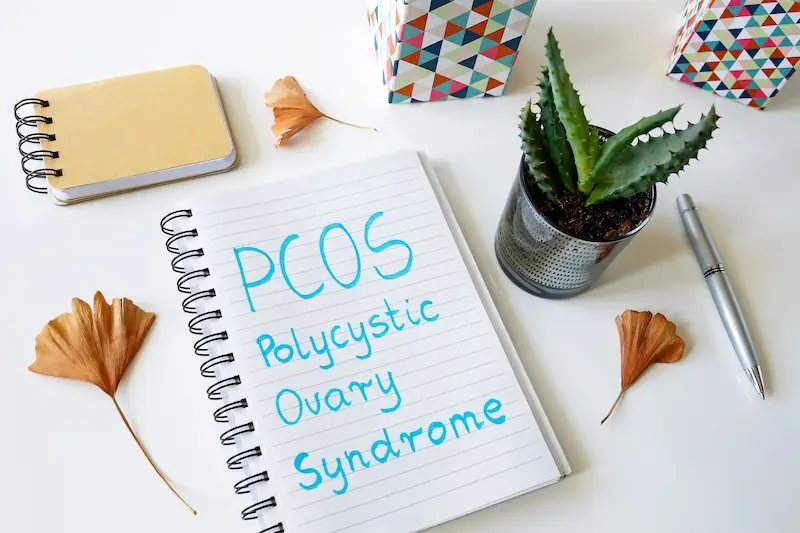Menopause is a significant transition in a woman’s life, often accompanied by various symptoms that can affect quality of life. While estrogen and progesterone therapies are commonly discussed, testosterone treatment is a lesser-known option that can offer benefits for women navigating menopause. Let’s delve into the role of testosterone in women’s health and the potential advantages of testosterone therapy during menopause.
Why ExploreTestosterone Treatment in Women
Testosterone is often associated with male health, but it’s also crucial for women. It plays a key role in mood regulation, libido, bone density, muscle strength, and overall energy levels. In women, testosterone is produced in the ovaries, adrenal glands, and peripheral tissues. As women approach menopause, the levels of testosterone, like other hormones, begin to decline, which can contribute to various menopausal symptoms.
Common Symptoms Testosterone Treatment Helps
During menopause, decreased testosterone levels can lead to symptoms that affect a woman’s physical and emotional well-being, including:
- Reduced libido or sex drive
- Fatigue and decreased energy levels
- Loss of muscle mass and strength
- Bone density reduction, increasing the risk of osteoporosis
- Mood swings and increased irritability
- Difficulty concentrating and memory lapses
Benefits of Testosterone Treatment
For women experiencing significant symptoms related to testosterone deficiency, hormone replacement therapy that includes testosterone can offer several benefits:
Improved Libido and Sexual Function
One of the most well-documented benefits of testosterone therapy in menopausal women is the improvement in sexual desire and function. Women who receive testosterone treatment often report increased libido, enhanced sexual satisfaction, and an overall improvement in sexual well-being.
Increased Energy and Vitality
Testosterone plays a vital role in energy metabolism. Women undergoing testosterone therapy frequently experience a boost in energy levels, which can translate to improved physical activity, exercise capacity, and a more active lifestyle.
Enhanced Muscle Mass and Bone Density
Testosterone is essential for maintaining muscle mass and bone strength. Treatment can help counteract the loss of muscle and bone density associated with aging and menopause, reducing the risk of osteoporosis and fractures.
Mood Stabilization
Though the relationship between testosterone and mood is complex, some studies suggest that testosterone therapy can help stabilize mood and reduce symptoms of depression and anxiety in menopausal women.
Cognitive Benefits
Preliminary research indicates that testosterone may have a protective effect on cognitive function. Some women report improved concentration, memory, and cognitive abilities after starting testosterone treatment.
Considerations, Risks and Cautions for Testosterone Treatment
Testosterone therapy is not without risks and should be approached with caution. It’s crucial for women considering this treatment to:
- Consult with a healthcare provider experienced in menopausal hormone therapy.
- Undergo thorough medical evaluation and hormone level testing.
- Discuss the potential benefits, risks, and side effects of testosterone treatment.
- Monitor hormone levels and health responses regularly throughout the treatment.
Testosterone treatment can offer significant benefits for women navigating the challenges of menopause, particularly for those experiencing symptoms related to testosterone deficiency. By enhancing sexual health, energy levels, muscle strength, bone density, mood stability, and cognitive function, testosterone therapy can contribute to a more vibrant and fulfilling midlife experience.
However, it’s essential to undertake this treatment under careful medical supervision to ensure its safety and effectiveness.
Women interested in exploring testosterone therapy should engage in open discussions with their doctor to make informed decisions about their hormonal health and well-being.
Want to explore what questions to ask your doctor about testosterone treatment? Book a Wellness Audit with Coach Carla.
Resources:
- Davis SR, Moreau M, Kroll R, et al. “Testosterone for low libido in postmenopausal women not taking estrogen.” The New England Journal of Medicine. 2008;359(19):2005-2017.
- This study investigates the efficacy of testosterone therapy in improving sexual function in postmenopausal women.
- Glaser RL, Dimitrakakis C. “Testosterone therapy in women: Myths and misconceptions.” Maturitas. 2013;74(3):230-234.
- This paper addresses common misconceptions about testosterone therapy in women and reviews its potential benefits and risks.
- Panay N, Hamoda H, Arya R, Savvas M; British Menopause Society and Women’s Health Concern. “Testosterone replacement in menopause.” Menopause International. 2013;19(3):155-159.
- Guidelines from the British Menopause Society providing insight into the role of testosterone in menopause management.
- Shifren JL, Davis SR. “Testosterone in women — therapeutic use and effects on sexual function and cardiovascular risk.” Nature Reviews Endocrinology. 2020;16(2):105-115.
- A comprehensive review of the therapeutic use of testosterone in women, including its effects on sexual function and cardiovascular risk.
- Davis SR, Worsley R. “Testosterone treatment in women: Where are we now?” Climacteric. 2020;23(3):222-233.
- An article reviewing the current state of knowledge regarding testosterone treatment in women, focusing on benefits and potential risks.
- The North American Menopause Society (NAMS). “The role of testosterone therapy in postmenopausal women: Position statement of The North American Menopause Society.” Menopause. 2015;22(2): 1-26.
- NAMS’s position statement on testosterone therapy, providing evidence-based recommendations for clinical practice.





